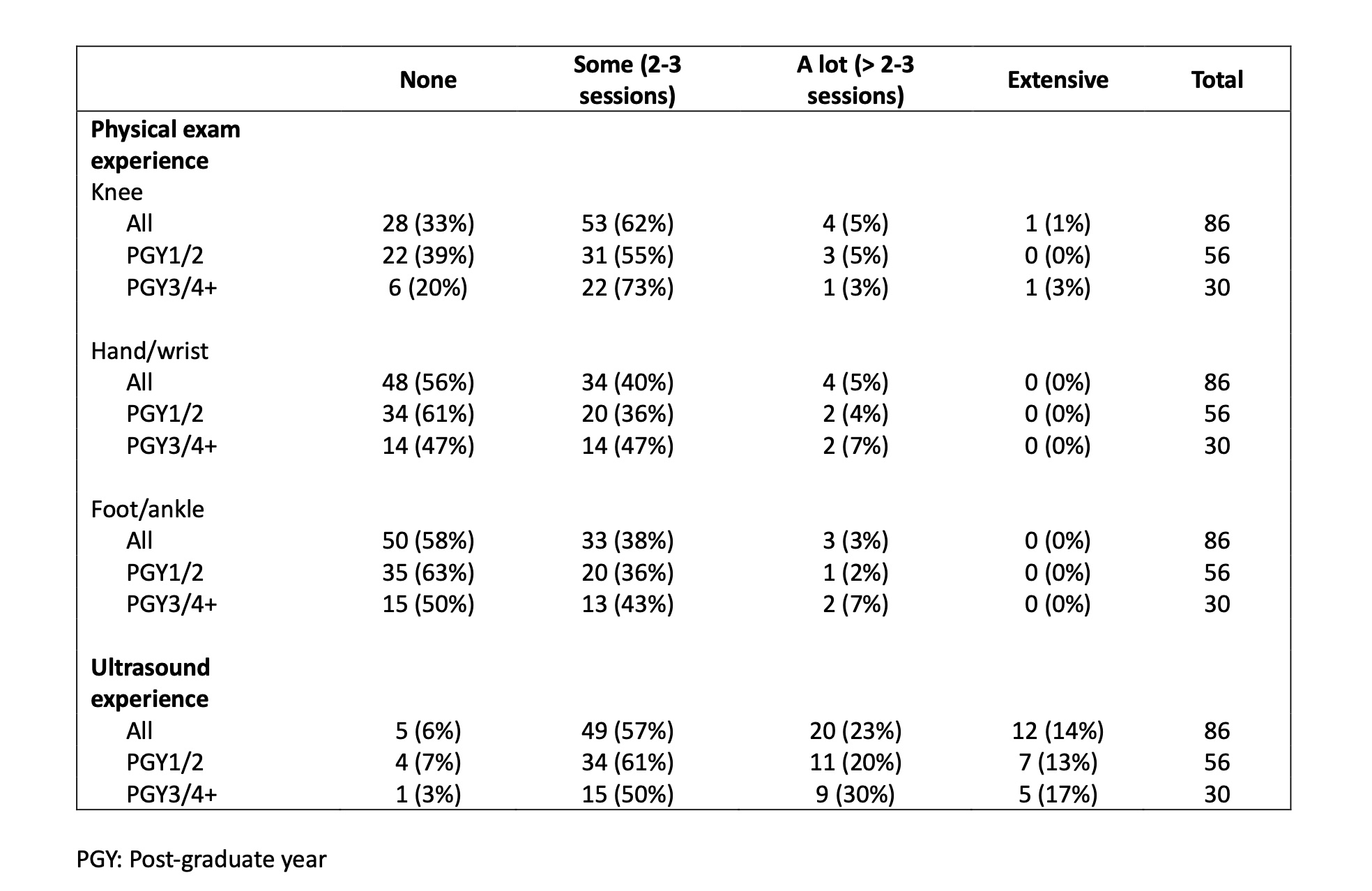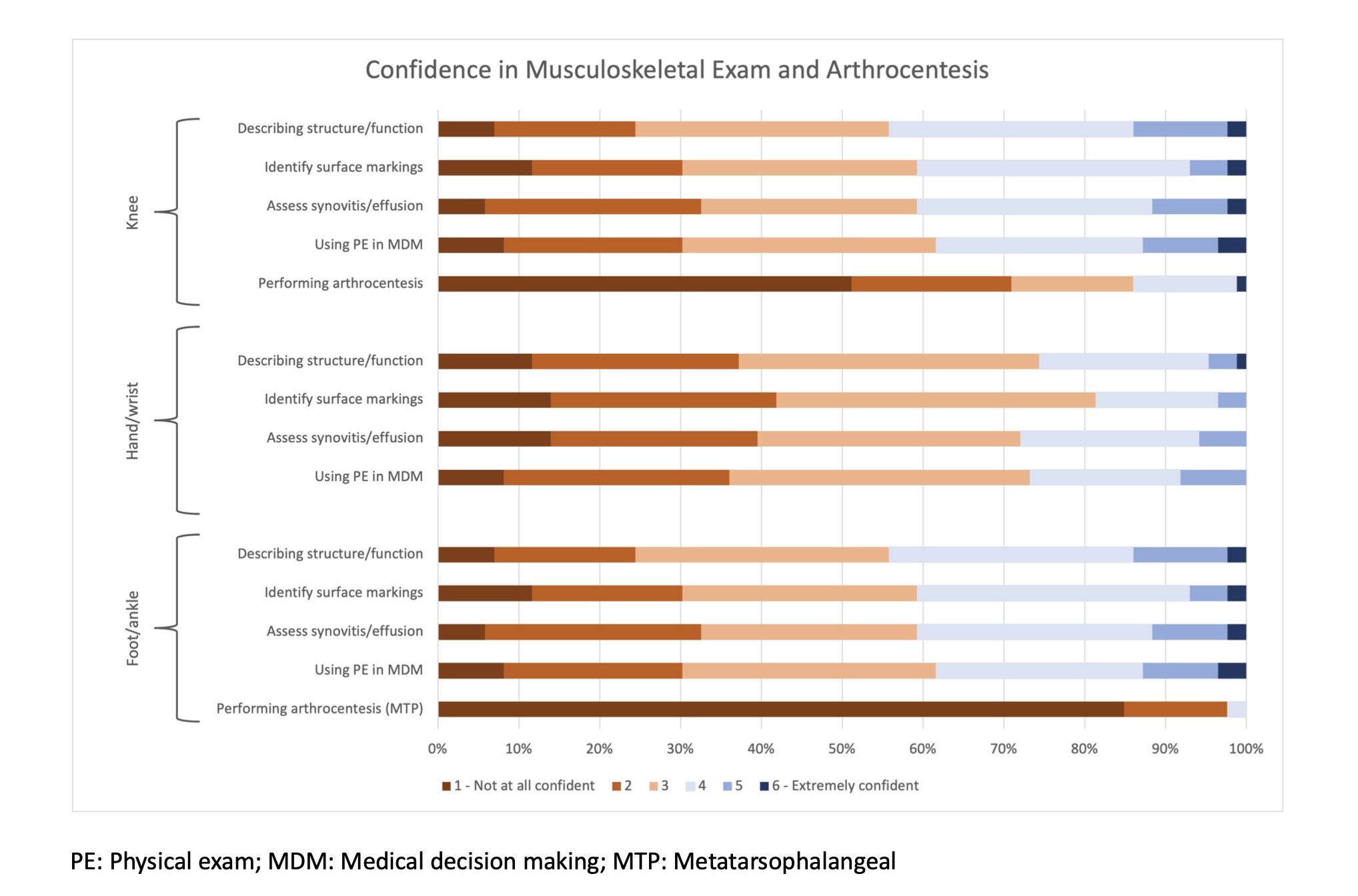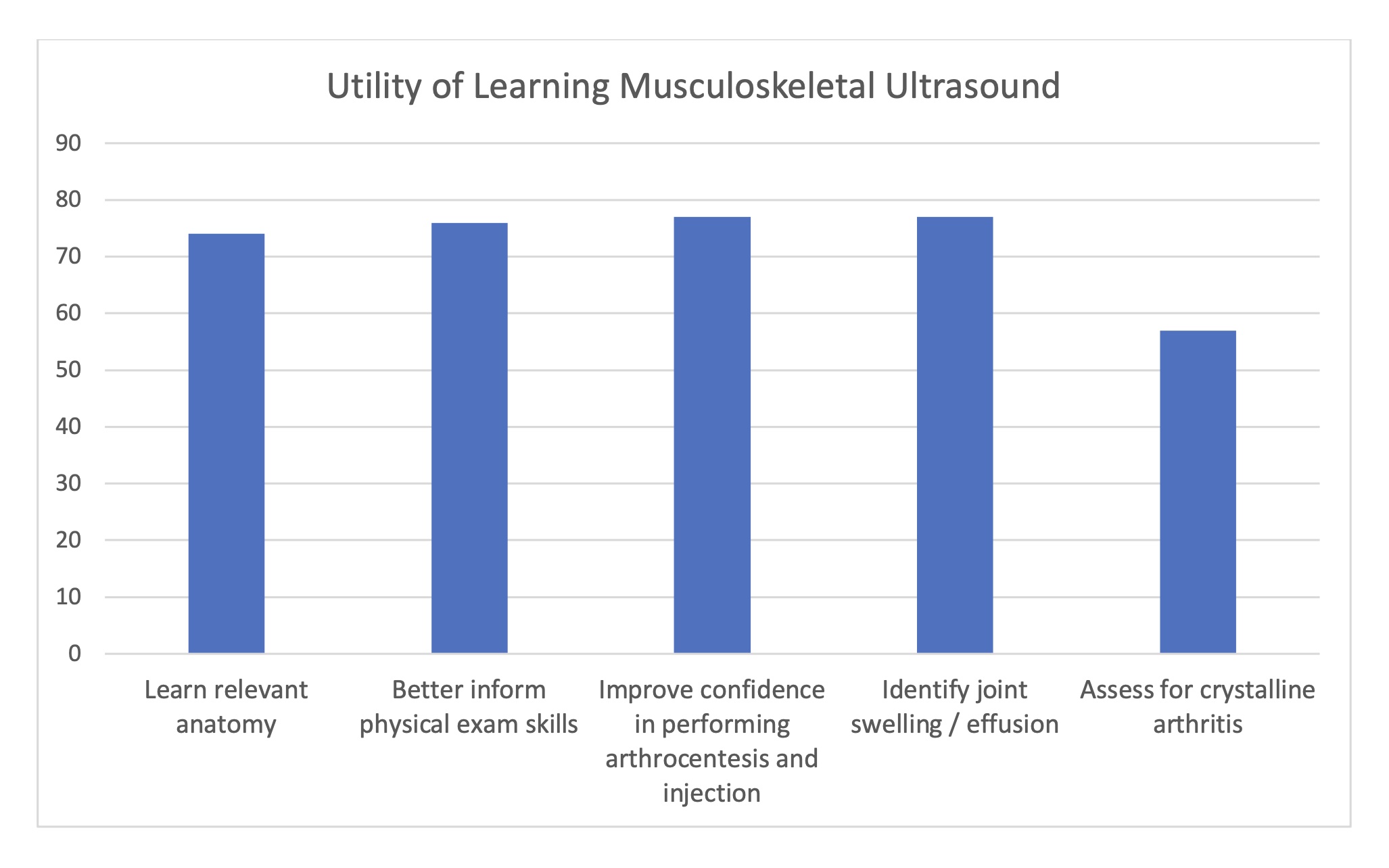Session Information
Session Type: Poster Session B
Session Time: 10:30AM-12:30PM
Background/Purpose: Point-Of-Care Ultrasound (POCUS) training is increasingly integrated into internal medicine (IM) residency training. However, POCUS programs often focus on cardiac and peripheral line skills and neglect the musculoskeletal (MSK) system, even though MSK complaints are the most common reasons patients seek outpatient care. Therefore, we performed a needs assessment to guide MSK ultrasound (MSKUS) training for IM residents.
Methods: We polled program leadership at 27 IM residency programs on the presence or absence of MSKUS in their POCUS courses. In addition, we surveyed IM residents at a single academic medical center to assess their (A) prior instruction in MSK exam and ultrasound, (B) confidence in physical examination of the knee, hand/wrist, and foot/ankle on a 1-6 scale (1 = not at all confident, 6 = extremely confident), (C) confidence in performing arthrocentesis of the knee and metatarsal phalangeal (MTP) on the same 1-6 scale, and (D) perceived benefits of learning MSKUS. Survey questions were adapted from a validated survey on resident MSK exam confidence (ACR 2014, abstract #1983). We analyzed data in aggregate and according to career trajectory (generalist vs. non-generalist) using unpaired two sample T-tests.
Results: Twenty-one of 27 (78%) IM residency programs responded to our query about MSKUS training. Of respondents, 14 (67%) reported incorporating some component of MSKUS into POCUS training, and only 7 (33%) provided MSKUS training for all residents in their program. On the IM resident survey, 86 of 155 (55%) residents responded (34 PGY1, 22 PGY2, 30 PGY3/4+). Of respondents, 33 (38%) reported considering a generalist career in primary care or hospital medicine. Many residents reported no prior training in physical examination of the knee (n=28, 33%), hand/wrist (n=48, 56%), and foot/ankle (n=50, 58%) (Table 1). Although 94% of residents reported prior ultrasound training, only 25% reported prior training in MSKUS. Resident confidence in MSK exam and arthrocentesis was low, with fewer than 45% rating >3/6 for knee and foot/ankle domains and fewer than 30% rating >3/6 for hand/wrist domains (Figure 1). Residents considering a generalist career reported significantly lower confidence than their peers in assessing synovitis or effusion in the hand/wrist (average confidence 2.5 vs. 3.0, p = 0.036) and performing MTP arthrocentesis/injection (1.0 vs. 1.3, p = 0.025). The majority of residents felt that learning MSKUS skills would improve their skills in MSK physical examination, arthrocentesis/injection, and assessing for crystalline arthritis (Figure 2).
Conclusion: Internal medicine residents receive little training in MSK physical exam or MSKUS, and their confidence in performing MSK examination and procedures is low, especially among those considering a generalist career who are likely to encounter these complaints daily. Our next step is to develop targeted MSKUS training for the IM resident POCUS curriculum to teach residents relevant anatomy, improve their MSK exam, help them detect true joint swelling, and optimize their arthrocentesis skills.
To cite this abstract in AMA style:
Barr A, Leverenz D, Criscione-Schreiber L, Chu P. A Needs Assessment to Inform the Design of a Musculoskeletal Ultrasound Curriculum for Internal Medicine Residents [abstract]. Arthritis Rheumatol. 2024; 76 (suppl 9). https://acrabstracts.org/abstract/a-needs-assessment-to-inform-the-design-of-a-musculoskeletal-ultrasound-curriculum-for-internal-medicine-residents/. Accessed .« Back to ACR Convergence 2024
ACR Meeting Abstracts - https://acrabstracts.org/abstract/a-needs-assessment-to-inform-the-design-of-a-musculoskeletal-ultrasound-curriculum-for-internal-medicine-residents/



